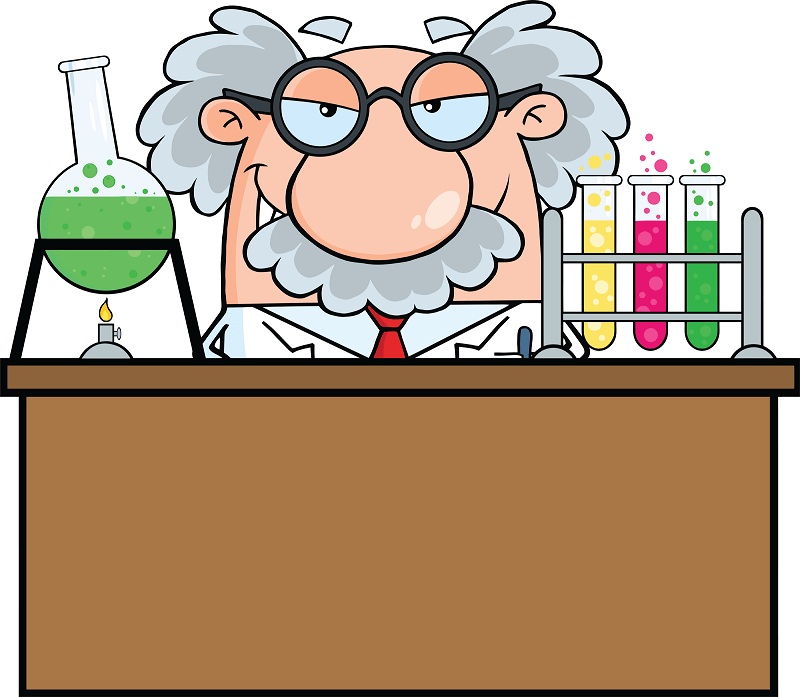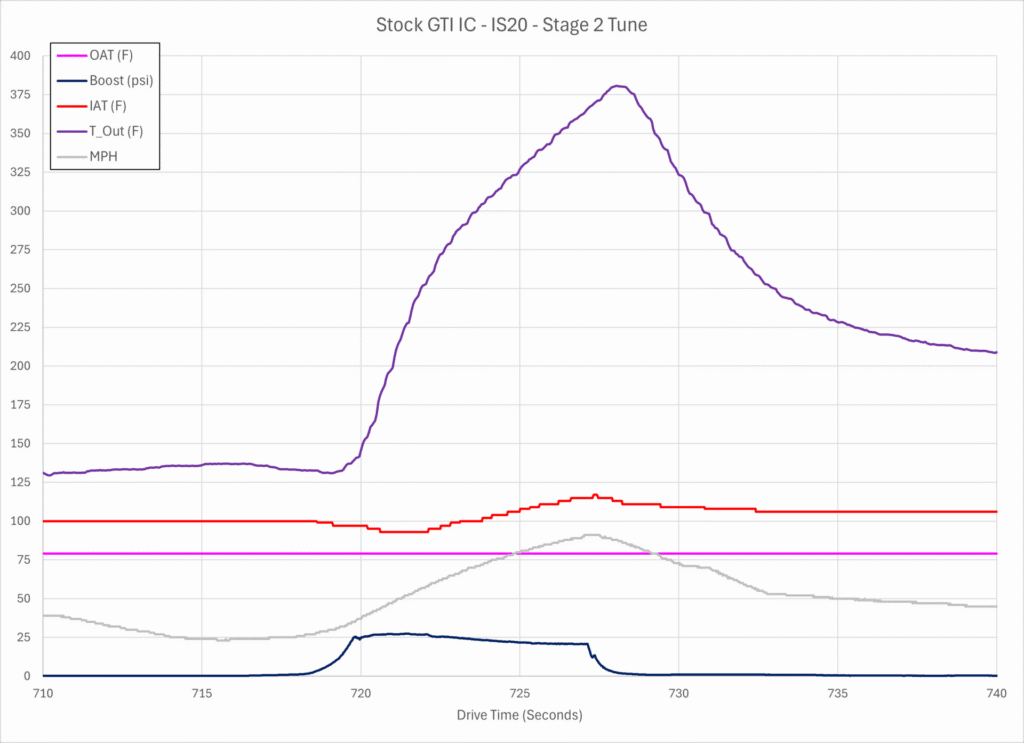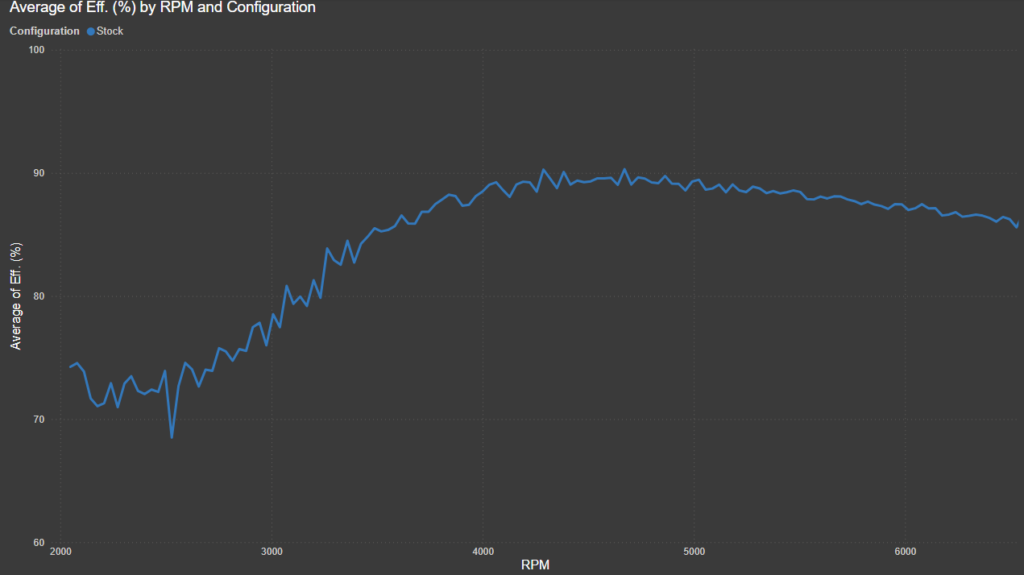Background:
Two days ago, I made a post highlighting some of the issues facing consumers on social media.
Not long after that, EQT provided a good example of using social media to mislead consumers.
This example comes from the EQT Facebook Group.
EQT Group Q&A:
A consumer posted a question to the group asking if they could get a stage 2 tune and still use the stock intercooler:

A consumer using a stock IC with stage 2 tune responded that they were doing this, and it had been working out for them.

An EQT representative then directly discredits the consumer’s experience using dismissive language, absolute statements, and emotional manipulation.

Analysis:
When shopping for car parts, be cautious of misleading sales tactics that play on emotions rather than facts.

In this post, I will analyze this real-world example and discuss how to spot manipulation.
Situation
A salesperson pushing to sell aftermarket intercoolers discredits the consumer experience with a stock intercooler and makes the following claim:
stock intercooler heat soaks after half a pull. Motor is happiest with the coolest air possible. So if you want a happier motor, you need one. If you don’t care about what your motor likes, then you don’t need one
Aaron Zambrano – Equilibrium Tuning Inc.
At first glance, this might sound reasonable—but it uses multiple psychological tricks to push a sale.
Here’s how:
Exaggeration & Misleading Claims
The claim that a stock intercooler “heat soaks after half a pull” is an absolute statement that ignores real-world variability.
The rate at which an intercooler heat soaks depends on factors like ambient temperature, operating airflow and turbo efficiency (which are functions of the ECU tune), and driving conditions.
Accurate testing should back up claims with temperature logs and independent testing—not vague statements.
Emotional Manipulation
Aaron uses a method called anthropomorphism.
Anthropomorphism – An interpretation of what is not human or personal in terms of human or personal characteristics
He says: “Motor is happiest with the coolest air possible.” This is a persuasive trick where he treats the engine like a person with feelings, making the consumer feel responsible for its “happiness.”
Lower intake temps can improve efficiency, but your engine doesn’t have emotions—it has operating tolerances.
Aaron fails to explain why an intercooler upgrade is necessary for the person’s use case. He just tries to make him feel like it is needed.

False Dilemma
In the following sentence, Aaron presents a false dilemma:
False Dilemma – When only two choices are presented yet more exist, or a spectrum of possible choices exists between two extremes.
He says: “If you want a happier motor, you need one. If you don’t care, then you don’t need one.” This is a false choice designed to pressure the consumer.
Aaron implies that not buying an aftermarket intercooler means neglecting your car. In reality, many factors determine whether an upgrade is worthwhile.
Instead of falling into the trap of “buy or neglect,” ask, “Under what conditions does my stock intercooler become a limitation?”
A good vendor will provide measured analysis, not guilt tactics.
Evidence:
Now, I will address the topic of the stock IC heat soaking with facts and evidence.

“Heat soak” refers to a significant decrease in the efficiency of an intercooler.
Intercooler Efficiency (η) is determined by comparing the change of the intake air temperature as it passes through an intercooler to the maximum possible change, which is to reach ambient (outside) air temperature.
The formula for calculating the efficiency is shown below:
η =\frac { T_{preIC}-T_{postIC} } {T_{preIC}-T_{ambient}} x 100%The chart below shows the variables of interest during a full-throttle third-gear pull using a Mk7 GTI equipped with an IS20 turbocharger, stock intercooler, and stage 2 tune—the same configuration as the person who posted the question.
The purple line (T_Out) shows the air temperature exiting the turbocharger compressor, which then enters the intercooler.
The red line (IAT) shows the air temperature after it leaves the intercooler.
The pink line (OAT) is the outside air temperature, the lowest the air leaving the intercooler could get if the intercooler was 100% efficient.

For reference, Bell Intercooler states that a good-performing intercooler achieves 60% to 70% efficiency, while an excellent-performing intercooler can reach around 90% efficiency.

There is no universal definition for when an intercooler’s efficiency has reached a point of “heat soak.” Since “heat soak” refers to a decrease in efficiency, and Bell Intercoolers identifies 60% efficiency as the low end of the typical street application, it is reasonable to consider an efficiency of less than 60% to be in the state of “heat soak.”
Returning to the logged data, the chart below shows the calculation results of the intercooler’s efficiency (η) during repeated pulls.
The lower end of the Y-axis is set to 60%, so any data extending off the bottom of the chart would show the intercooler operating at an efficiency level designated to be “heat soak.”

Contrary to the EQT representative’s statement:
stock intercooler heat soaks after half a pull.
Aaron Zambrano – Equilibrium Tuning Inc.

The intercooler operates slightly over 85% efficiency in the middle of the pull and, more significantly, never gets close to operating near 60% efficiency-“heat soak.”
Conclusion:
This post has shown an example of a person affiliated with Equilibrium Tuning discrediting a consumer’s experience, making an exaggerated absolute [false] claim (“stock intercooler heat soaks after half a pull“), and using emotional manipulation to pressure a consumer.
They create a false dilemma that discourages critical thinking by implying that an owner either “cares” about their engine (buys an aftermarket intercooler) or doesn’t.
This exchange highlights common sales tactics that dismiss contrary evidence, use fear and guilt, and push unnecessary upgrades without considering individual needs.
Consumers should be wary of these pressure techniques and demand data-driven justifications.
References:
- Understanding EQT – Introduction

Lol I was not “selling” anything.
And you are rich to accuse of “discrediting a consumers experience” as years ago you did that very thing to ME when I had a terrible experience with my upgraded intercooler and you told me my real world experience and logs were invalid.
Could you give it a rest buddy? Like seriously. I know you are retired from whatever it was you did in your career but you are not and never will be project farm. 🤙
Aaron, I said you were ‘pushing to sell’, not that you were conducting a sale.
I disproved your intercooler conclusion, not your experience. The data you logged was useful, and was the basis for the post I made comparing your results using the IE IC with the Wagner IC. You erred in analyzing your data.
You know I am retired from whatever it is that I did? That’s incorrect.
You shouldn’t have bothered to comment, all you’re doing is demonstrating why people affiliated with EQT cannot be trusted.